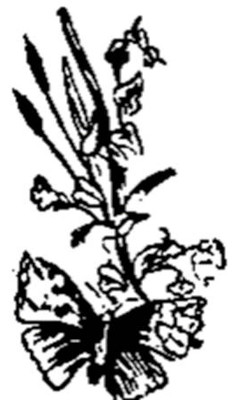This article has been transcribed from a copy of the Cardiff Times in the online collection of scanned Welsh newspapers 1804-1919 in the National Library of Wales, with grateful recognition of the free access accorded to all readers. Paragraph breaks have been introduced for easier reading.
Notes
This Samuel column is presumably an attempt at benevolence. It is doubtful, however, that any of those in 'the shadow' would recognise it as such. For the writer, poverty implies a lack of maternal love and loveless marriages.
'Kind hearts are more than coronets': Tennyson, 'Lady Clara Vere de Vere' (1842), ll. 55-56. —— David Skilton

unshine is one of the pleasantest phases, of nature, and its products are as pleasing as itself. With what joy do we welcome the bright warm sunshine after the dull cold days of winter. How our hearts and faces light up when the Spring draws nigh, and old Sol comes out of his cloudy prison, and lets his light and warmth into the corners of the world.
Who is there who does not know how delightful it is upon going to your window first thing in the morning to find the sun shining into your bedroom, and nature with her best clothes on.

Sunshine
Under such conditions the morning tub becomes a positive luxury, and the vigour with which the matutinal meal is attacked is calculated to surprise the members of the family.
And all because the sun shines. When the morning is dull, and the lowering clouds warn us that rain is hanging about, we feel heavy and go forth with anything but a jaunty air. We are depressed by the atmospheric surroundings. But once the sun creeps out and lets us feel his presence all is changed, and we are light-hearted in a moment.
Even children are affected by sunshine, and their glee when the days are bright is a thing to dream of.
As in nature, so it is in life, and sunshine is a great factor for good with humanity. The song says:--
Just a little sunshine,
Just a little rain,
Just a little happiness,
Just a little pain,
Just a little poverty,
Just a little gold,
Then the great eventful
Tale of life is told. ['Just a little sunshine, just a little rain' (1890), lyrics by Smedley Norton, composer Frederic Solomon.]

Dislikes Sunshine
And so it is: and sunshine is the best part of life. If people but knew [knew] it, the sunshine of life is easily provided, and there are many thousands today who are longing for the sunshine they might have if their more fortunate brothers and sisters would only take the trouble to provide it for them. 'Kind hearts are more than coronets. And simple faith than Norman blood,' says our popular poet, Tennyson, and he has in those two lines struck the key-note of human sunshine.
If those who are blessed with this world’s goods to a large degree would for the nonce 'put themselves out of the way' and, diverging from the primrose path they daily tread, walk down the tear-stained court and alleys of the world, they would find heaps of their fellows who had but a poor notion of the reality of life’s sunshine – men, women, and children who lived their lives in the shade, and whose sunshine came, alas too often, only when the angel of death came with his final summons. Of love they know almost nothing, and hope has long ceased to spring up within their bosoms. Talk to these downtrodden wayfarers of hope, and they will tell you with hard mocking laughter that it is a Will o' the W[h]isp that which lures you on to madness, and then exultingly leaves you with remorse within your heart and curses on your lips. Yes, hope is to them a delusion and a snare, as they one and all but know too well.
They have nursed it in their secret hearts through lingering days and dreary nights, they have watched for it at eve and awakened in the morning with the fullest expectation of its coming. Yet it came not, and the weary watchers have gone back to their old desolate life convinced that for them hope has no existence in this world. If the sunshine of love could but shine for one brief day through the casements of their lives how different they would be, how joyous, how hopeful all would seem to them. But love, like hope, is to them a thing they know not. They have heard of it, and have been told it exists — but not for them.

Sunshine's Results
Far away in the sunshiny regions where wealth abounds, they fancy it may be, but in bye-ways and lanes wherein they pass their lives, they have seen it not.
Even mothers in these places do not love their children as do the mothers who live where sunshine reigns. The love of mothers of shadowland is a defensive love, ready to stick up for the offspring born into the land of shadows, should they be molested, but it is not the love known to whose lot has fallen in the pleasant places of the earth. But if these mothers of shadowland were transplanted to the domain of sunshine they would early develop the love which has been crushed out of their hearts by the misfortune of circumstances.
They married not for love, but for convenience, and no sunshine decked their bridal morn nor has any more than a passing glimpse of it entered their lives since they said 'I will' at the altar, or went through a civil form of marriage at the nearest registry office.
Yet these poor mortals' lives might be made happier if those who are able to do so would transplant the sunshine of love into the quarters where they exist rather than live.
Tracts and preaching are all very well in their way, but one ounce of genuine sympathy is worth a ton of them.

Shadow
Do not, my sunshine-blessed brothers, look upon these poor unfortunates as a race apart. They are men and women, made in God's image like yourselves, and in many cases only want a helping hand to enable them to emerge from the stagnation of Cloudland to the life and activity of the World of Sunshine.
'Full many a flower is born to blush unseen.
And waste its fragrance on the desert air.'
[Thomas Grey, 'Elegy Written in a Country Churchyard' (1751), ll. 55-56]
And many a flower of humanity buds and dies ere it reaches its fullness for the simple reason that it has never felt the sunshine.
Links to Related Material
- ‘'Elegy Written in a Country Churchyard‘ (complete text of first edition)
- Introduction to the poem by George Sherburne
Last modified 25 April 2022